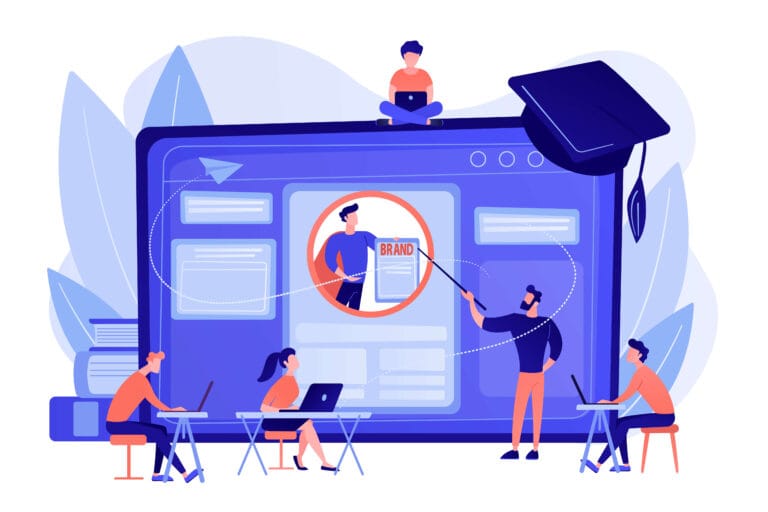In the heart of Indigenous communities, there is a treasure trove of wisdom and traditional knowledge that has been passed down through generations. At the core of preserving this heritage are the Indigenous elders, revered as the knowledge holders and cultural custodians. In this article, we will delve into the invaluable role that Indigenous elders play as literacy keepers, their impact on early literacy, and the programs, such as the Australian Literacy and Numeracy Foundation (ALNF), that recognize the significance of involving elders in early literacy initiatives. We will also discuss the myriad benefits that arise from intergenerational learning.
The Role of Indigenous Elders as Knowledge Holders
Indigenous elders are the pillars of wisdom within their communities. They possess a profound understanding of their culture, traditions, and the history that has been handed down to them from their ancestors. This repository of knowledge encompasses not only the stories and legends but also the language, customs, and values that define Indigenous cultures.
Elders are respected as the storytellers, healers, and teachers. Their role is multifaceted, as they are not just the keepers of knowledge but also the transmitters of this knowledge to the younger generations. Their wisdom is a bridge that connects the past with the present, ensuring the cultural continuity of Indigenous communities.
The Importance of Intergenerational Learning and Its Impact on Early Literacy
Intergenerational learning is at the heart of Indigenous culture. It is a dynamic process through which knowledge and skills are transferred from elders to children and youth. This form of learning is immersive and experiential, where children actively participate in traditional activities, ceremonies, and storytelling.
The impact of intergenerational learning on early literacy is profound. As Indigenous children engage with their elders and listen to the stories of their people, they not only learn about their cultural heritage but also develop essential literacy skills. Oral storytelling enhances vocabulary, comprehension, and communication skills. Moreover, it fosters a love for reading and learning from a young age.
Involvement of Elders in Early Literacy Initiatives: The Australian Literacy and Numeracy Foundation (ALNF)
The Australian Literacy and Numeracy Foundation (ALNF) is a shining example of an organization that recognizes the pivotal role of Indigenous elders in early literacy initiatives. Their programs are deeply rooted in the principles of respect for culture and intergenerational learning. The ALNF’s “Community Literacy Project” is a testament to this commitment.
In this project, Indigenous elders actively participate in the delivery of literacy programs. They work alongside teachers and facilitators to ensure that cultural elements are seamlessly integrated into the curriculum. Elders share their stories, language, and traditional knowledge to make the learning experience culturally relevant and engaging for the children.
Benefits of Involving Elders in Literacy Programs
The involvement of Indigenous elders in literacy programs brings a plethora of benefits:
- Preservation of Indigenous Languages: Elders are key to language preservation. Their involvement ensures that Indigenous languages are passed on to the younger generation, preventing their extinction.
- Cultural Connection: When children engage with their elders, they develop a deeper connection to their culture and heritage. This connection fosters a sense of identity and belonging.
- Oral Tradition Preservation: Elders are the carriers of oral traditions, which are essential to Indigenous cultures. Involving them in literacy programs helps in preserving these traditions.
- Enhanced Learning: The wisdom and guidance of elders enhance the quality of early literacy programs. Their storytelling and teachings make the learning experience more meaningful and effective.
- Role Modeling: Elders serve as role models, not only in terms of knowledge but also in their values and principles. They instil a sense of respect, resilience, and cultural pride in the younger generation.
Conclusion
In conclusion, Indigenous elders are the unsung heroes of early literacy in Indigenous communities. Their role as knowledge keepers, teachers, and cultural custodians is invaluable. Programs like the Australian Literacy and Numeracy Foundation recognize the importance of involving elders in early literacy initiatives, ensuring that traditional knowledge is passed down to the next generation. The benefits of intergenerational learning extend beyond literacy skills; they encompass the preservation of Indigenous languages, cultures, and a profound sense of belonging for Indigenous children. The elders, with their timeless wisdom, are the torchbearers of Indigenous heritage, ensuring that it continues to shine brightly for generations to come.







